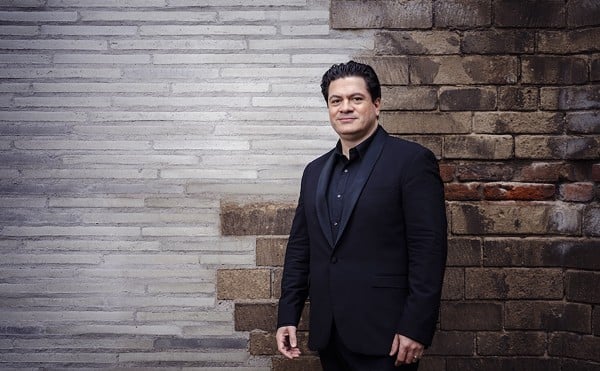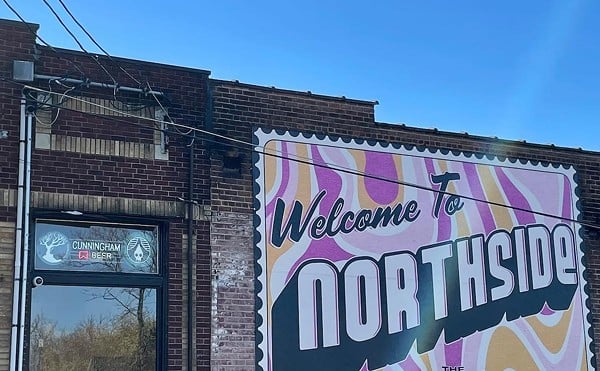|
William Menefield has this show-off shirt. It's royal blue; this side of nouveau pimp. But if you're in his audience and he shows up wearing it, strap yourself in — Menefield's about to thrash the piano into submission.
Menefield, 22, straddles and then usurps the protégé/prodigy tag like any other artist who started young and only got better. He's dragging his piano behind him in the sand, erasing all those tired references to "Young William." He's a grown-ass man.
This outing is his coming-of-age portfolio, a "see what I'm capable of" exhibition that major labels should be sweating. Menefield has, among others, Jazz pianist/arranger/multi-instrumentalist Erwin Stuckey to thank for tutelage and influence; however, Menefield's sheer talent, ear for melody and burgeoning arranging skills are all his own.
Will's Revenge (413 Records), his second release as leader and first as producer, captures succinctly his live energy and intricate band interplay. Saxophonist Stacy Dillard is a snake charmer, eliciting soprano and tenor tones as hectic, showering, kinetic and melodic as William's own. Dillard and Menefield play basketball together and it's obvious from their aural give-and-go's — most notably on "Victory Suite (I, II and III)."
Jerome Jennings channels Art Blakey throughout, peppering snares and clicking sticks while Dean Hulett plucks a sumptuous bass that's never edged out or even edgy. Bruce Menefield, William's father and an outstanding multi-reed man, nods to John Coltrane without sounding like an unseasoned knock-off.
William Menefield is a leader whose playing is nothing short of breathtaking and whose growth can be literally charted since his 1998 J-Curve Records release Big Will Leaps In. Since then, he's played every venue from The Aronoff to the Grenadier and won honors from an Otto M. Budig Foundation grant to a residency from the Taft Museum.
He's one of a scant number of young local players who understands and diligently practices the art of wood-shedding. Shortly before the album's release, I saw him play the somberly celebratory "Thank You, Lord" at The Greenwich during The Ra Session, an otherwise rowdy set of mostly poets and rappers.
He brought the room to him.
Thankfully, he's recorded his arrangement for posterity. Hairs stand up because it's devoid of over-the-top black Gospel chords, and slightly brushed with Chopin and Keith Jarrett. By the time Menefield returns to the music-box sweetness at song's end, he's turned "Thank You, Lord" right-side out.
Along with "A Touch of Sunlight" and "Guillermo's Groove," the three solo cuts represent the purity of his gift that has been marinating all this time in melted down Oscar Peterson, Bill Evans and McCoy Tyner records.
In "Beam Me Up, Scotty," the album's closer, Menefield sings that he's "Trying to go much higher/With the Messiah." For him, playing's the thing that'll get him there. Until then, he must enter through the father.
And William Menefield comes from Bruce Menefield.
I would wax poetic about baton passing and all that but it's insufficient. The remaining analogy is that of the Marsalises, those Louisianans emanating from Ellis — the father/pianist/composer/educator.
On My Steps (Black Sax Records), William Menefield returns the DNA and mutes the leaderly piano fills in favor of punctuating his father's bright, expansive and sheetly horn playing. On this, the only recording I've ever heard of Bruce Menefield, groove is in the heart and horn. He goes for flat-out suppleness and a contemporary sheen that neither hinders nor ghettoizes his profoundly personal message and approach.
Bruce Menefield is an obviously spiritual man whose beliefs play out in titles like "My Call," "My Walk of Faith," "Circle of Prayer" and "The Way, The Truth ... The Omega."
Speaking of Coltrane, it's the latter cut that catapults Bruce Menefield into the realm of Coltrane sideman Pharaoh Sanders. Its loping bass (Hulett, again on deck), DJ Burel's crashing and burning drum kit, and son William's smoldering/splattering piano work is like the soundtrack to King Kong's decimation of New York City.
"I Am" is the album's closer and its shortest track. On it Bruce Menefield is unadorned. During 2:46 of John Klemmer-like Menefield showers, Bruce's horn is the vessel through which he speaks to himself, to God and to us. It's a prayer, really. And because he prays it, we are blessed.
The only blessing greater is to see father and son, saxophonist and pianist, composer and composer, play together. Buy these two albums and pray someday you'll get the chance.
WILLIAM MENEFIELD launches the release of Will's Revenge on Friday at the School for Creative and Performing Arts. Concert proceeds benefit his scholarship fund and SCPA. My Steps is out now.





